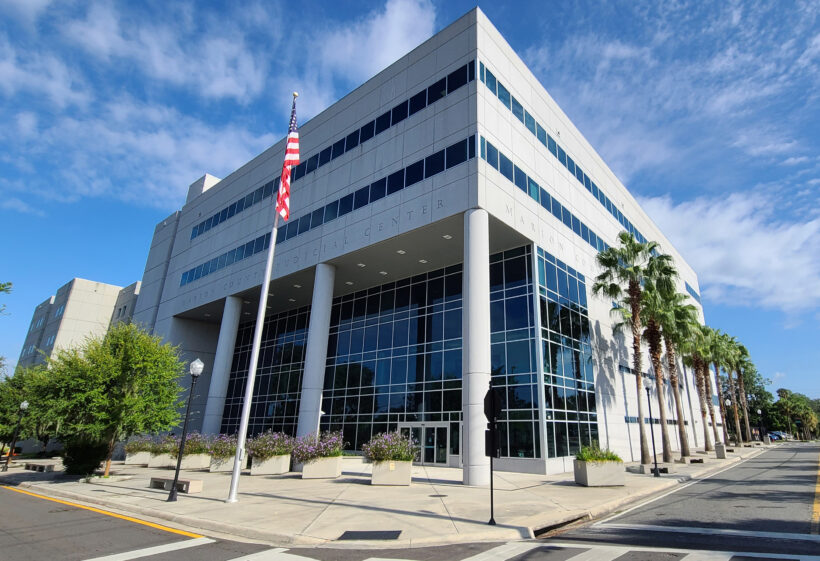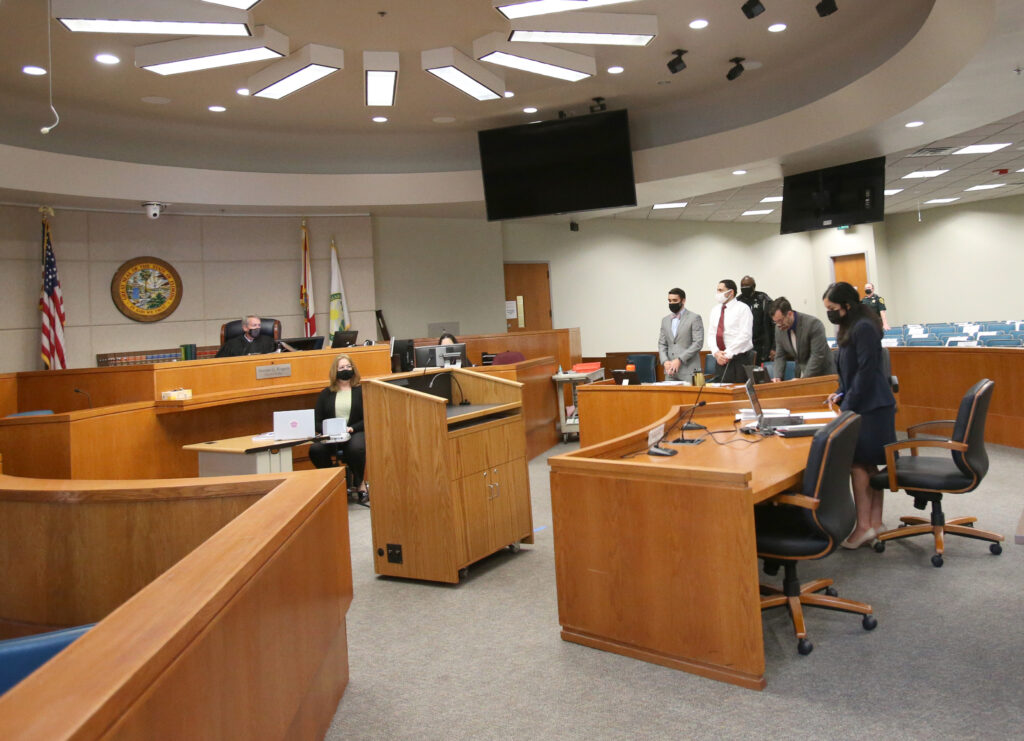Trials will continue in face of COVID-19 surge


The Marion County Judicial Center is shown in this file photo. [Bruce Ackerman/Ocala Gazette]
Facemask will be mandatory in the courthouse for those not fully vaccinated and encouraged for all others, according to temporary measures announced on Aug. 3 by Fifth Circuit Chief Judge Daniel B. Merritt Jr.
The fifth circuit covers Marion, Citrus, Hernando, Lake, and Sumter counties.
Merritt’s move comes after Supreme Court Justice Charles T. Canady entered an administrative order on July 30 in response to the state-wide uptick in COVID-19 positivity, granting local chief judges authority to implement emergency health protocols of mask-wearing, remote hearings and social distancing. Courts will provide a mask to anyone who does not have one.
Florida Supreme Court Chief Justice Charles Canady and state court leadership issue statement in light of updated CDC pandemic guidelines. Read more: https://t.co/4VhgApr0NJ pic.twitter.com/WAO7KUKBc0
— FloridaSupremeCourt (@flcourts) July 27, 2021
In Marion, COVID-19 cases are approaching all-time highs after 1,881 cases were reported for the week ending July 30, according to the Florida Department of Health.
Jury trials were postponed for nearly a year after the initial outbreak of the pandemic. Jury trials resumed in March, but a backlog of cases are pending.
While the recent measures will allow jury trials to continue, there were changes for some proceedings.
All Baker and Marchman Act proceedings will move to remote hearings via telephone, video conferencing or other means.
The courts conducted remote hearings during the year-long suspension of in-person trials.

Judge Steven Rogers conducts a jury trial in April, one of the first after the courts shut down due to the COVID-19 pandemic. [Bruce Ackerman/Ocala Gazette]
At the start of the pandemic, the Supreme Court of Florida adopted a four-phased approach to reopening the Courts and directed local courts to adopt an operational plan.
Under Phase 1, in‐person contacts were inadvisable and court facilities were effectively closed to the public.
In Phase 2, limited in‐person contact was permitted, provided protective measures were used and COVID-19 positivity rates met benchmarks.
Phase 3 relaxed the protective measures and allowed a greater volume of in‐person contact if the court met certain benchmarks of Phase 2 and if there was an effective vaccine available and in use.
Phase 4 was when COVID‐19 no longer presented a significant risk to public health and safety.
When the Supreme Court entered a June order encouraging reopening and normalization of court operations, Marion County was in Phase 2 of its prior operation plan and had resumed trials as of the first week of March.
With the backlog of cases following almost a year’s halt of jury trials, judges have looked to streamline docket management and ramp up activity.
Although criminal cases continue to hold priority when scheduling trials, Chief Judge Merritt entered a standing order for the 5th Circuit on April 29th that mapped out a strategy to address all existing and new civil cases.
The order required all cases be categorized based on whether they were considered “complex, streamlined, or general” for the purpose of setting tighter deadlines for motions, discovery, status conferences, and mediation and the goal of completing civil cases within 18 months.





